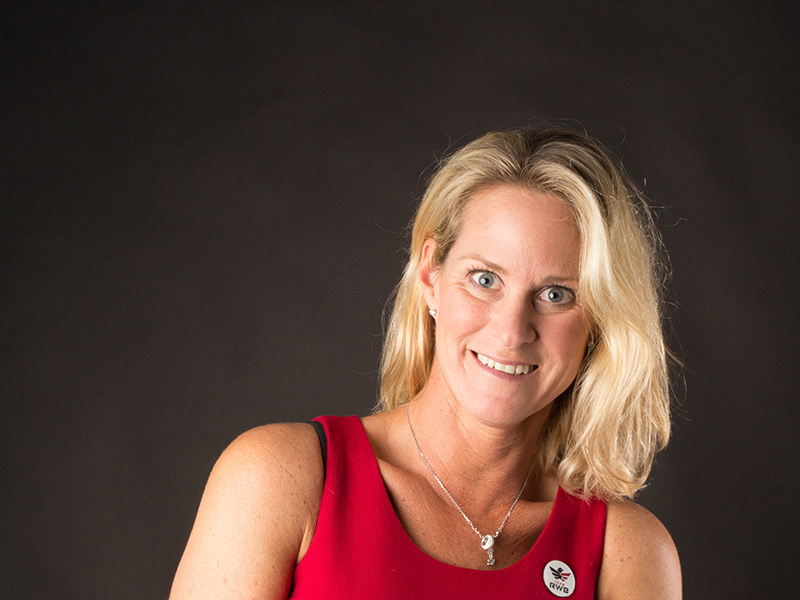Renee Champagne’s drive comes from the traumas she has survived, which led to the post-traumatic stress, the brain injury, the overmedicating. All of those, along with military and community resources, contributed to her ability to go from surviving to thriving.
Studying for a master’s degree in clinical mental health at the College of William and Mary, Champagne is fighting to erase the stigma of mental illness in the military, encourage veterans and their families to ask for help and championing alternative forms of healing.
“People with PTSD and brain injuries can learn to adapt just like someone missing a limb learns to adapt,” says Champagne, 43, who plans to complete her degree this spring and specialize in treatment for veterans and their families. “I also can often listen to other veterans and their families struggles and just get it—grasp so quickly what they’re going through.”
Champagne, who served with Air Force Security Forces, did not share details on her traumas for this story, instead focusing on how she healed and her drive to bring needed awareness and resources to the community. For years, she avoided conversations on the subject, smiled to cover sadness and over-scheduled her days until about three years ago when she was hospitalized for an accidental overdose on tranquilizers prescribed to numb her pain. Many people don’t recognize
signs of mental distress, she says: not feeling like oneself or taking care of oneself, agitation and feeling withdrawn and/or hopeless.
Champagne now surrounds herself with a community of support. She has open conversations with her military spouse and two children, who write her reminders about daily responsibilities and do extra chores on her tough days. She also has a service dog, golden retriever Miley, to quiet her anxiety in public and after recurring nightmares.
To connect with and serve other veterans and their families, Champagne volunteers as chapter captain for Team Red, White & Blue (connecting veterans with physical and social activities), student liaison for Give an Hour (free mental health care for military families) and peer mentor for Wounded Warrior Project. She and Miley also are featured in the new book “Reporting for Duty”, which will raise money to pair injured veterans with service dogs.
“I’ve changed by choosing to own my story, by not being ashamed of what I’ve been through,” or afraid to ask for help Champagne says.
I won’t go back to that dark place. I take care of myself so I can be the best I can and help others. People battling mental health issues deserve just as much respect as someone with cancer.”
As a therapist, Champagne will incorporate a mind-body-spirit approach outlined in the Department of Defense concept of Total Force Fitness. Personally, she relies on professional therapy, nutrition, faith and exercise—from 50-mile running events that help her feel physically powerful to yoga that quiets her mind—to stay positive and embrace chances such as enrolling at William and Mary.
Since Champagne and her husband, a colonel, plan to retire in Williamsburg, Virgnia her mission is to add local military support services such as transition programs for schoolchildren and wellness programs to foster post-traumatic growth. A personal trainer and yoga teacher, she recently completed a video on the benefits of yoga for the Consortium for Health and Military Performance (CHAMP) at Walter Reed Medical Center. Ultimately, she’d like to help other veterans train to become mental health clinicians.
Not surprisingly, Champagne is a big believer that positive psychological change can emerge from struggles. First, though, people have to talk about those struggles. “These are uncomfortable topics, but they’re reality,” she says. “We can’t hide from reality.”
Resources for Veterans
- Wounded Warrior Project:
woundedwarriorproject.org - Give an Hour:
giveanhour.org - Team Red, White & Blue:
teamrwb.org - Military Child Education Coalition:
militarychild.org - Warriors At Ease
(training yoga and meditation teachers
for military settings):
warriorsatease.org - Colonial Behavioral Health:
colonialbehavioralhealth.org - Puller Clinic (Veteran benefits clinic):
veterans@wm.edu

